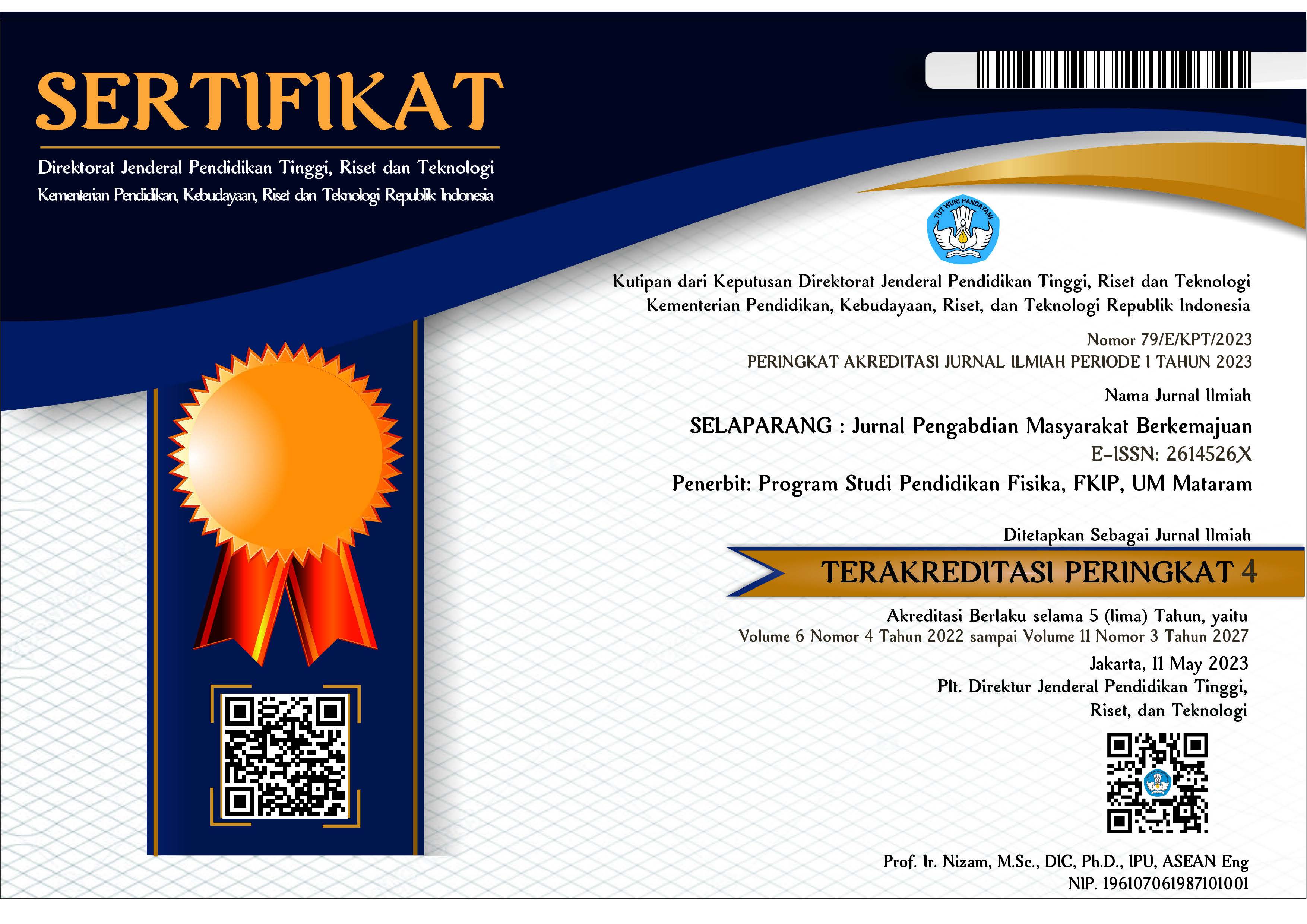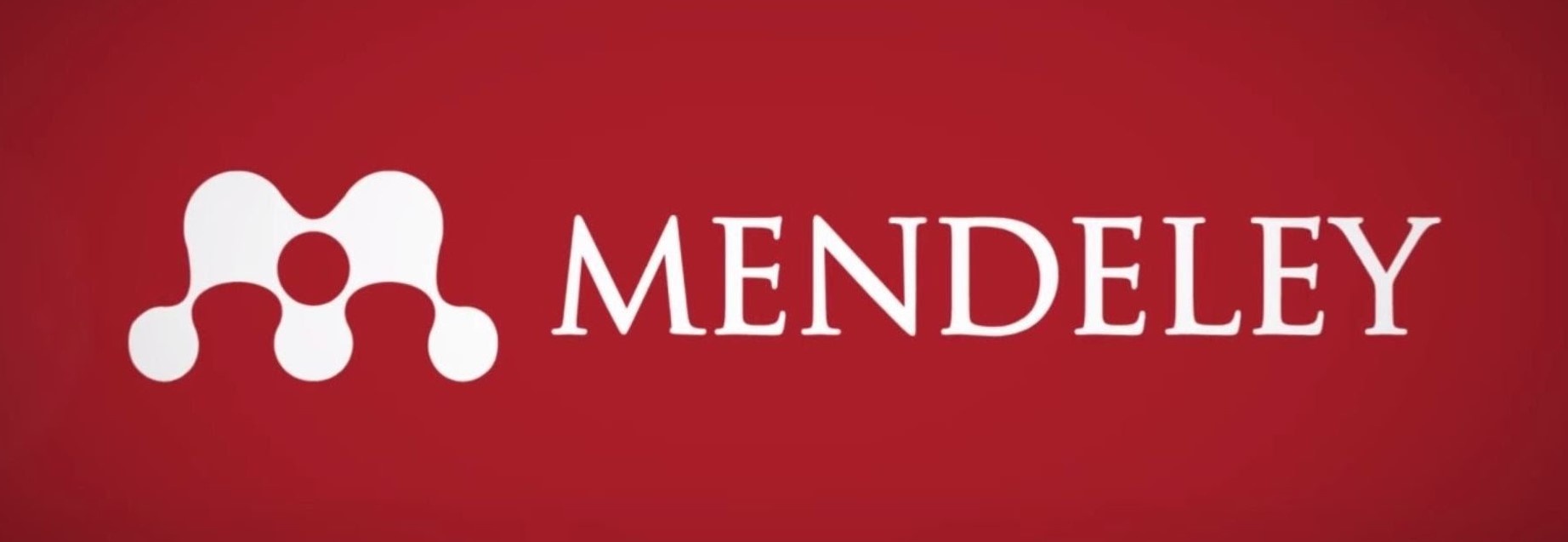Pelatihan Membaca Al-Quran Menggunakan Metode Tsaqifa
Abstract
Abstrak
Minimnya pengajar membaca Al-Qur’an pada kaum LANSIA WNI di Rumah Dakwah Gombak Malaysia, terjadi karena kebudayaan-kebudayaan setempat yang tidak mendukung dalam menumbuhkan motivasi keagamaan. hal tersebut berdampak pada rendahnya ruh beragama dan pengetahuan agama kaum LANSIA. Hal tersebut dapat dilihat dari banyaknya kaum LANSIA yang belum bisa membaca Al-Quran. Dengan demikian perlu adanya upaya-upaya kongkrit bagaimana membantu mitra mengurai permasalahan yang ada pada kaum LANSIA dan ibu-ibu ‘Aisyiyah Pimpinan Cabang Istimewa Muhammadiyah Malaysia dalam pembinaan membaca Al-Quran dengan metode Tsaqifa melalui usaha rintisan kelompok belajar senior school. Tujuan dilaksanakan PkM ini untuk (1) Memberikan pelatihan/workshop pada ibu-ibu ‘Aisyiyah tentang metode Tsaqifa sebagai metode membaca Al-Quran bagi kaum LANSIA (2) Memberikan pelatihan Aisyiyah di Pimpinan Cabang Istimewa Muhammadiyah ‘Aisyiyah (PCIA) Malaysia Kuala Lumpur Malaysia sebagai kaderisasi berkelanjutan dalam mengajar Al-Quran pada LANSIA dengan menggunakan metode Tsaqifa. Metode penelitian menggunakan Participatory Action Research (PAR) merupakan pendekatan yang prosesnya bertujuan untuk pembelajaran dalam mengatasi masalah dan pemenuhan kebutuhan praktis masyarakat, serta produksi ilmu pengetahuan. Kegiatan dilakukan selama satu bulan. Mitra kegiatan adalah Pimpinan Cabang Istimewa ’Aisyiyah Malaysia dengan sasaran kegiatan ibu-ibu LANSIA di Rumah Dakwah Gombak Malaysia. Hasil dari evaluasi yang dilakukan, banyak ibu LANSIA yang merasa terbantu dengan adanya metode pembelajaran Tsaqifa. Meski dalam pelaksanaannya banyak kendala yang masih perlu ada perbaikan bagi pengabdi berikutnya.
Kata Kunci: Al-Quran; metode Tsaqifa; lansia.
Abstract
The lack of Qur'an recitation teachers for the elderly Indonesian citizens at the Rumah Dakwah Gombak Malaysia, occurs because of local cultures that are not supportive in fostering religious motivation. this has an impact on the low religious spirit and religious knowledge of the elderly. This can be seen from the number of elderly people who cannot read the Koran. Thus, there is a need for concrete efforts to help partners unravel the problems that exist in the elderly and mothers of ‘Aisyiyah Muhammadiyah Malaysia Special Branch in fostering reading the Koran with the Tsaqifa method through the pilot efforts of the senior school study group. The objectives of this PkM are to (1) Provide training/workshops for ‘Aisyiyah mothers on the Tsaqifa method as a method of reading the Quran for the elderly (2) Provide Aisyiyah training at the Special Branch of Muhammadiyah ’Aisyiyah (PCIA) Malaysia Kuala Lumpur Malaysia as a sustainable regeneration in teaching the Quran to the elderly using the Tsaqifa method. The research method used Participatory Action Research (PAR), an approach whose process aims at learning to solve problems and fulfil the practical needs of the community, as well as the production of knowledge. Activities were carried out for one month. The activity partner was the Special Branch of ‘Aisyiyah Malaysia with the target of the activities of LANSIA mothers at the Gombak Malaysia Da'wah House. As a result of the evaluation, many LANSIA mothers felt helped by the Tsaqifa learning method. Although in its implementation there are many obstacles that still need improvement for the next servant.
Keywords: Al-Quran; Tsaqifa method; elderly.
Keywords
Full Text:
PDFReferences
Akbar, A. O. (2014). Epistemological Construction of Imam Syâfi’î Legal Reasoning. Ahkam: Jurnal Ilmu Syariah, 14(2), 185–192. https://doi.org/10.15408/ajis.v14i2.1277
Arifin, A., & Habibbulloh, M. (2019). EFEKTIVITAS MODEL PEMBELAJARAN KOOPERATIF STAD MENGGUNAKAN ALAT PERAGA ALQURAN UNTUK MENINGKATKAN PENGUASAAN TAJWID. Jurnal Pendidikan Agama Islam, 16(2), 189–202. https://doi.org/10.14421/jpai.2019.162-04
Arlan, E. M., Sanubari, T. P. E., & Wijaya, F. A. (2023). Food Access of Elderly Women Head Household in Kumpulrejo Salatiga, Indonesia. Amerta Nutrition, 7(1), 131–138. https://doi.org/10.20473/amnt.v7i1.2023.131-138
Elfalahy, L. (2021). Ayat-Ayat Hukum dalam Alquran Mengatur Hubungan Sesama Manusia. Al-Istinbath: Jurnal Hukum Islam, 6(1), 165–178. https://doi.org/10.29240/jhi.v6i1.2719
Henriksen, S. E., & Richey, L. A. (2022). Google’s Tech Philanthropy: Capitalism and Humanitarianism in the Digital Age. Public Anthropologist, 4(1), 21–50. https://doi.org/10.1163/25891715-bja10030
Hidayah, N. (2014). Reinterpretation of Women’s Economic Rights in Islam. Ahkam: Jurnal Ilmu Syariah, 14(1), 85–96. https://doi.org/10.15408/ajis.v17i1.1245
Imran, A. N., & Samsu, A. K. A. (2022). Implementation of forest extension methods in improving the knowledge and skills of forest farmers in Maros District (Case study on forestry extension methods in Tompobulu District, Maros Regency). Jurnal Penelitian Kehutanan Wallacea, 11(2), 89–99. https://doi.org/10.18330/jwallacea.2022.vol11iss2pp89-99
Kaswanto, R. L., & Sjaf, S. (2021). Participatory mapping of the potential landscape services of forest village area in Pattaneteang, Bantaeng Regency. Jurnal Pengelolaan Sumberdaya Alam dan Lingkungan, 11(2), 189–203. https://doi.org/10.29244/jpsl.11.2.189-203
Kristianti, D. S. (2014). Islamic Credit Cards and Consumptive Behaviour of Society. Ahkam: Jurnal Ilmu Syariah, 14(2), 287–296. https://doi.org/10.15408/ajis.v14i2.1287
Makhful, M., & Wage, W. (2022). Pelatihan Membaca Al Qur’an dengan Metode Tsaqifa pada Pimpinan Cabang Muhammadiyah Sumbang Kabupaten Banyumas. Jurnal Literasi Pengabdian Dan Pemberdayaan Masyarakat, 1(2), 103–112. https://doi.org/10.61813/jlppm.v1i2.14
Muhammad, S. (2016). Implementasi Metode Tsaqifa dalam Pembelajaran Membaca al-Qur’an Bagi Orang Dewasa. At Ta’Dib, 11(2). https://doi.org/10.21111/at-tadib.v11i2.780
Prasetyo, Y. (2024). The Stringent Support Requirements for Independent Candidates in Regional Elections: A Legal Self-Critique of Indonesian Democracy. Jurnal Konstitusi, 21(2), 226–243. https://doi.org/10.31078/jk2124
Putri, S. A., Aji, A. S., Ridwan, E. S., Aprilia, V., Zulfa, I. F., Alfiana, R., … Surendran, S. (2023). Nutritionists’ Views on Gene-Based Nutrition Services in Indonesia. Amerta Nutrition, 7(2SP), 269–275. https://doi.org/10.20473/amnt.v7i2SP.2023.269-275
Rodin, D. (2014). Apostasy and Religious Freedom in the Alquran. Ahkam: Jurnal Ilmu Syariah, 14(2), 253–266. https://doi.org/10.15408/ajis.v14i2.1284
Syuhud, H. (2021). Interrelation of Mind and Revelation: Analysis of the Thought of Ulama Mutakallimin in the Formation of Islamic Law. Journal of Islamic Law, 2(1), 43–61. https://doi.org/10.24260/jil.v2i1.127
The Utilization Of Waqf Funds On The Water Action For People Program In The Al Quran Waqf Agency Based On The Sharia Maqashid Perspective. (2019). Millah: Journal of Religious Studies, 19(1), 137–166. https://doi.org/10.20885/millah.vol19.iss1.art7
Willya, E. (2014). Kalâlah in Alquran and Its Interpretation According to Suni and Syiah Imâmiyyah. Ahkam: Jurnal Ilmu Syariah, 14(1), 135–144. https://doi.org/10.15408/ajis.v17i1.1250
DOI: https://doi.org/10.31764/jpmb.v8i4.27456
Refbacks
- There are currently no refbacks.

This work is licensed under a Creative Commons Attribution-ShareAlike 4.0 International License.
______________________________________________________
Jurnal Selaparang
p-ISSN 2614-5251 || e-ISSN 2614-526X
EDITORIAL OFFICE:



















